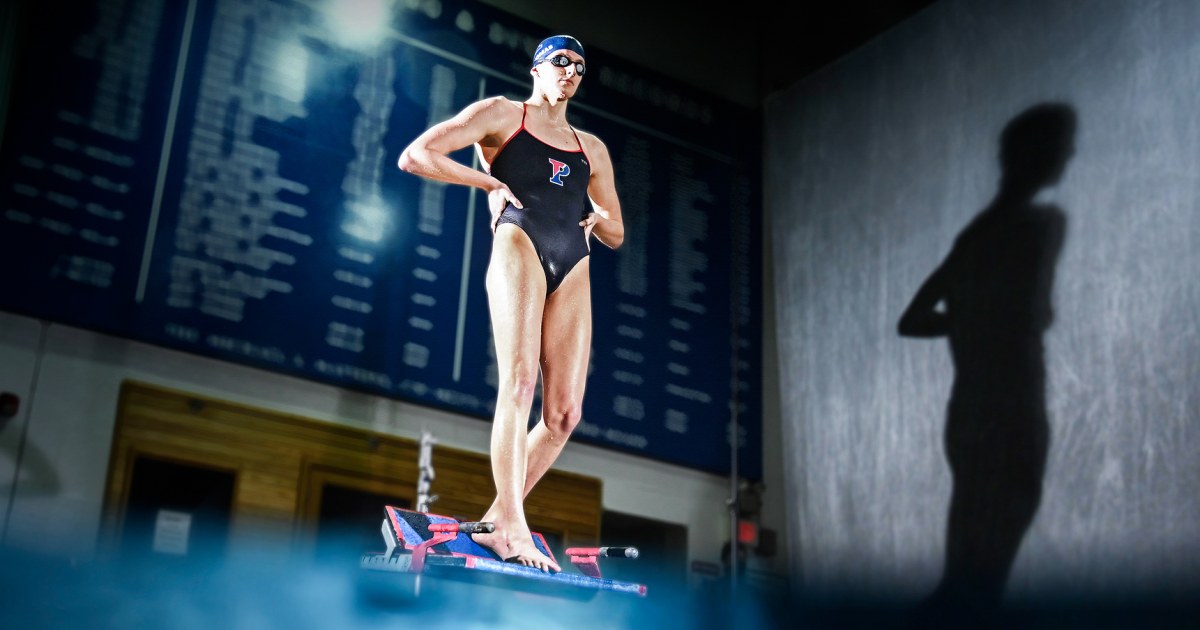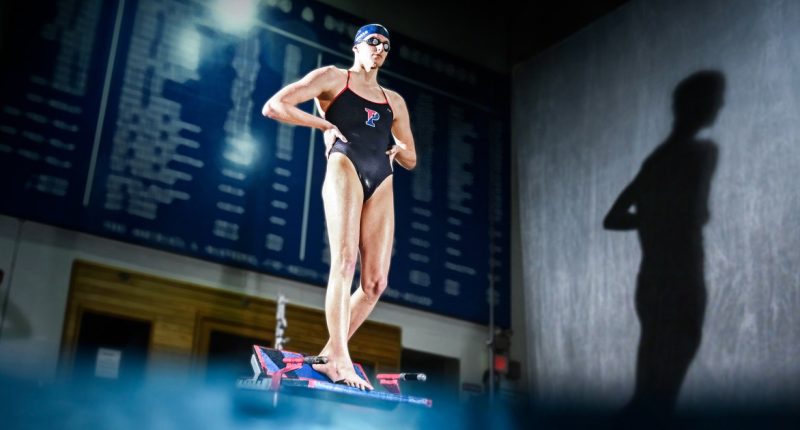
A group of more than 400 current and former Olympic, professional and collegiate athletes, over 300 academics and roughly 100 advocacy groups released separate letters Tuesday urging the NCAA not to ban transgender women from competing in women’s college sports.
The letters were coordinated by LGBTQ sports advocacy group Athlete Ally, and the signatories include former U.S. Women’s National Team soccer co-captain Megan Rapinoe, former WNBA and Olympic basketball star Sue Bird, and former NFL defensive end R.K. Russell.
“We call on you to be on the right side of history and affirm that sport is truly for us all,” the letter signed by the athletes reads. “Do not ban transgender women from NCAA women’s sports.”
In a separate statement from Rapinoe, arguably the most famous athlete to sign, the two-time Olympic medalist said “bans against trans athletes framed as ‘protecting women’s sports’ do not speak for us, and do nothing to protect us.”
“The time is now for the NCAA and the nationwide athletic community to speak up and affirm that sports should be for everyone, including transgender athletes,” Rapinoe said in the statement, which was released by Athlete Ally.
When asked about the letters, the NCAA said in a statement that “college sports are the premier stage for women’s sports in America and the NCAA will continue to promote Title IX, make unprecedented investments in women’s sports and ensure fair competition for all student-athletes in all NCAA championships.”
The NCAA has permitted transgender women to compete on women’s sports teams under certain conditions since 2010. In 2022, the association announced that it would implement a new sport-by-sport approach. The current guidelines, like the 2010 guidelines, require transgender women to undergo at least one year of testosterone suppression, but the new rules largely defer the specifics to the national governing body for each sport.
The new rules set a media firestorm that first brewed over University of Pennsylvania transgender swimmer Lia Thomas’ winning streak in the 2021-2022 season.
Tuesday’s letters are part of a broader — and highly divisive — debate over transgender sports participation. A recent report from Gallup found that 69% of people say that transgender athletes should only be allowed to compete on sports teams that correspond with the sex they were assigned at birth.
The NCAA, the largest college sports association with nearly 1,100 member schools, has been a central figure in this debate.
Last month, more than a dozen college swimmers and volleyball players sued the NCAA, arguing that the sporting body violated their Title IX rights by allowing Thomas to compete at the national women’s swimming championships in 2022.
Former University of Kentucky swimmer Riley Gaines, who was one of the plaintiffs in last month’s lawsuit and was mentioned in two of the letters to the NCAA, tied with Thomas for fifth place in the women’s 200-yard freestyle race at a 2022 NCAA championship meet and has since become a vocal advocate against trans inclusion in women’s sports.
Just last week, 17 House Republicans co-signed a letter to NCAA President Charlie Baker urging him to prohibit trans women from competing in all women’s sports. The letter cited Thomas’ wins and a decision earlier this month by a smaller sports governing body, the National Association of Intercollegiate Athletics, or NAIA, to prohibit trans women from participating in women’s sports at its approximately 250 member colleges.
“We urge the NCAA to reconsider its current policy that allows biological males to deprive women of a fair opportunity to compete and achieve athletic success,” the letter reads. “All women in NCAA-affiliated schools should not fear having their athletic accomplishments minimized by biological males.”
Conservative lawmakers across the country have also gotten involved with the issue. Two dozen states across the country now have bans on transgender students participating in school sports that align with their gender identity, according to LGBTQ think tank Movement Advancement Project. Injunctions are temporarily blocking some of these laws, including those in Arizona, Idaho and Utah, according to MAP.
The Biden administration on Friday issued a revised Title IX regulation, clarifying that the 1972 federal civil rights law prohibits anti-LGBTQ discrimination in schools. However, the new rule notably excluded a new policy forbidding schools from enacting blanket bans on transgender athletes, which, according to The Associated Press, the administration had initially planned to include.
For more from NBC Out, sign up for our weekly newsletter.
Source: | This article originally belongs to Nbcnews.com










